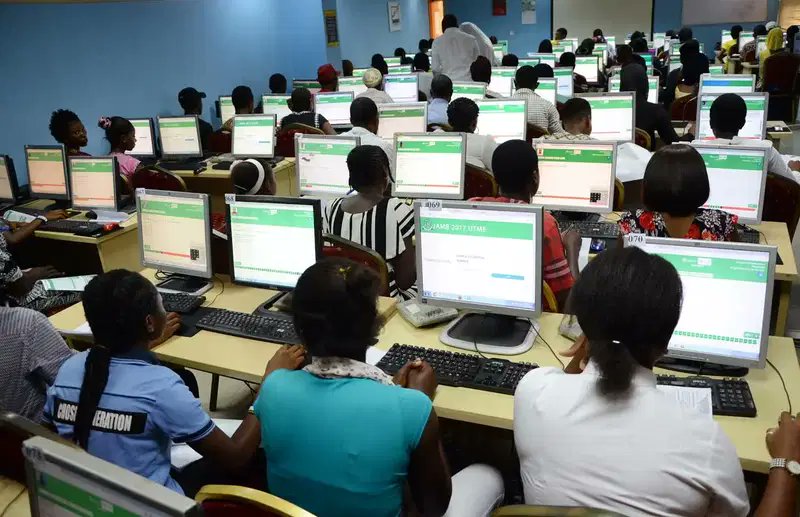
Over 75% of Students Scored Below 200 in the 2025 UTME, Raising Concerns About Educational Standards

The recently released 2025 Unified Tertiary Matriculation Examination (UTME) results have sparked widespread concern about the state of education in Nigeria.
According to the Joint Admissions and Matriculation Board (JAMB), out of the 1,955,069 candidates who participated in the exam, a staggering 1.5 million scored less than 200 out of a possible 400.
This translates to a failure rate of approximately 78%, a figure that has ignited debates about systemic issues plaguing the country’s education sector.
The dismal performance underscores deep-rooted challenges, including economic hardship, inadequate infrastructure, and questionable examination logistics, which have collectively hindered students’ ability to succeed.
One of the most contentious issues surrounding the 2025 UTME is JAMB’s decision to schedule accreditation as early as 6:30 AM.
While the exams officially begin at 8:00 AM, the early check-in time has been heavily criticized for putting students at risk.
Many candidates, especially those traveling long distances to reach examination centers, face significant safety concerns, including the threat of kidnapping and accidents.
A report by Edugist on April 28, 2025, highlighted these dangers, noting that the early timing exacerbates the challenges for vulnerable students, particularly in regions with poor transportation infrastructure and heightened security risks.
Critics, including public figures like Peter Obi, have called the scheduling “reckless,” arguing that it prioritizes logistical convenience over the well-being of candidates.
JAMB, however, has defended the early start, insisting it ensures a smooth process, but this justification has done little to quell public outrage.
The broader context of Nigeria’s education system reveals even more systemic problems contributing to the poor UTME results. Economic hardship has made it increasingly difficult for students to focus on their studies.
As one X user, @1blackoracle, pointed out, many families struggle to afford basic necessities like food, leaving little room for academic preparation.
This sentiment is echoed in a 2021 report by the Nifemi Brown Foundation, which detailed how inadequate funding, poor infrastructure, and a lack of teaching aids have eroded the quality of education in Nigeria over the past two decades.
The report also noted that corruption within the education sector, including academic fraud and bribery, has further compounded these issues, creating an environment where learning is deprioritized.
Social media reactions to the UTME results have been a mix of frustration, blame, and reflection. Some users, like @Anefiok, attributed the low scores to distractions such as social media platforms like TikTok, accusing students of prioritizing entertainment over education.
Others, however, pointed to systemic failures beyond the students’ control. For instance, @chineduokoli_ criticized government policies under President Tinubu, citing hiked tuition fees, limited access to transportation, and lecturer absenteeism as factors that demotivate students.
Meanwhile, @OurFavOnlineDoc argued that the 78% failure rate suggests flaws in the examination process itself, questioning whether the early timing and overall conditions set by JAMB are fair to candidates.
This perspective raises an important question: when such a large percentage of students fail, should the blame fall solely on them, or should the system be held accountable?
The 2025 UTME results serve as a wake-up call for Nigeria’s education sector.
Addressing these challenges will require a multifaceted approach, including reforming JAMB’s scheduling practices, improving school infrastructure, and tackling economic inequalities that hinder learning.
Without urgent intervention, the future of education in Nigeria remains at risk, leaving millions of young people without the opportunities they deserve.


